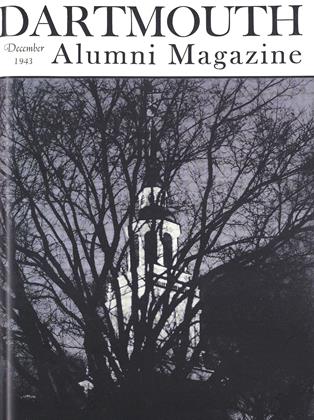NEW YORK EDUCATION BOARD HONORS ERNEST P. SEELMAN UPON RETIRING
ON MAY 17, 1943, the Board of Higher Education of the City of New York adopted the following resolution:
Resolved that the Board of Higher Education expresses its appreciation for the able and conscientious service rendered by the Hon. Ernest P. Seelman as a member of this Board from July. 19, 1934 to March 17, 1943, and acknowledges the especial indebtedness to him for his wise counsels and unstinted efforts in connection with the selection and acquisition of a permanent site for Brooklyn College and the planning and erection of the present buildings thereon. Not _ only was he largely instrumental in obtaining civic support for this much-needed project, but also as chairman of the Administrative Committee of Brooklyn College, during the illness of Dr. Howe, he personally shouldered many of the problems involved in an undertaking of such magnitude and complexity. As a participant in the deliberations of the Board, his fine sincerity, his high courage and his staunch devotion to the best interests of the municipal college system commanded the admiration and the affectionate esteem of his fellow members, and even those who differed with him on occasions, respected his independence of view.
In 1934, when he first became a member of the Board, Seelman found much discontent, depression, unemployment and recourse to nostrums. All this, he believed, had led to a demand for an increase in the rights of students, tutors, and instructors, at the expense of the responsibility of the higher groups. He found his task of meeting these abuses hopeless until the outbreak of World War 11.
During the turbulent days in the Thirties, Seelman presided at five trials of teachers accused of perjury and of duct unbecoming a teacher. The very first case was the most difficult for him because he found himself duty-bound to find a Dartmouth man guilty. In three of the other cases, the teachers resigned while the trial was on, and in the fifth case he gave the teacher the benefit of the doubt, and allowed him to keep his position with the loss of a year's salary.
An idea of the magnitude of the duties of the Board of Higher Education—a board of 21 persons selected by a politically minded mayor to serve nine years without pay—may be found in two of its functions. It supervises the College of the City of New York, which at City College, Hunter College, Brooklyn College, and Queens College, at the day sessions, has close to 25,000 students; at night sessions slightly less, so that with these and with those included in the summer sessions and in extension work the lives of 80,000 are touched in normal peace times. It also supervises a budget of from eleven to twelve million dollars for salaries, supplies, and upkeep of buildings.
After almost nine years of service on the Board and after having been, as Seelman declared in his resignation, "in consistent disagreement with the administration crowd," that same crowd recognized "his fine sincerity, his high courage, and his strenuous devotion to the best interest of the municipal college system," and resolved that these commended the admiration and affectionate esteem of his fellow members.
"The granite of New Hampshire remains part of them 'til death."
 View Full Issue
View Full Issue
More From This Issue
-
 Article
ArticleV-12 PHYSICAL TRAINING
December 1943 By C. E. W. -
 Article
ArticleA REPORT ON FINANCES
December 1943 -
 Class Notes
Class Notes1937
December 1943 By JOHN H. DEVLIN JR., FRANCIS T. FENN JR. -
 Article
ArticleEMPLOYMENT FOR ALUMNI
December 1943 By PROF. FRANCIS J. NEEF -
 Class Notes
Class Notes1933
December 1943 By GEORGE F. THERIAULT, LEE W. ECKELS -
 Article
ArticleSHATTUCK OBSERVATORY
December 1943 By L. B. RICHARDSON '00







